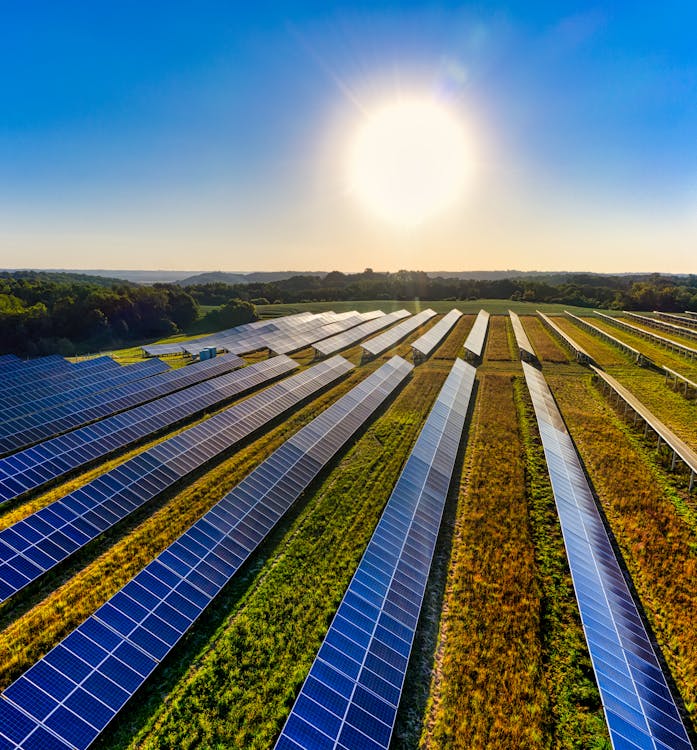Benefits Of Solar Energy PA: Our Company Focuses On The Setup And Management Of Photovoltaic Energy Systems
History and Advancement of Photovoltaic Panel Business
The creation of solar panel business can be traced back to the 1800s when Alexandre Edmond Becquerel discovered the photovoltaic effect. Would he have envisioned how his discovery would revolutionize the method we harness energy?
Early Starts

In 1954, Bell Labs developed the very first practical solar battery. This marked a significant milestone in the history of solar energy. They were at first used to power space satellites, however who knew this was just the start?
Evolution and Growth
- In the 1970s, an energy crisis caused increased interest in renewable resource sources, consisting of solar power.
- By the 1990s, developments in technology and increasing environmental awareness caused the development of solar panel business globally.
A New Era
As we got in the 21st century, the solar market saw a rapid development. The demand for tidy and renewable resource brought about a new age in the solar panel industry.
Remarkable Truths
- The world's first solar energy station was developed in 1982 in Hisperia, California.
- By 2019, solar power had actually become the world's fastest-growing source of power.
The journey of solar panel business has been exceptional, hasn't it? The future holds immense potential, with continuous improvements leading the way for a sustainable future. Can we imagine a world powered totally by solar energy?
Moving on
Today, solar panel companies continue to innovate, aiming for more effective and cost-efficient services. The development of solar energy has actually come a long way, and yet, the journey has just started.
The Core of Photovoltaic Panel Production
Ever wonder what goes into producing those glossy, sun-loving solar panels? The process is as impressive as the end item (Solar Panel Company). High-purity silicon, the primary component in solar panels, undergoes numerous changes to guarantee its effectiveness and durability
From Sand to Silicon
Crystalline silicon, the backbone of most solar panels, stems from basic sand. It's a remarkable journey, isn't it? The sand undergoes a high-temperature reaction with carbon to form silicon. This isn't just any silicon. The silicon utilized in photovoltaic panels is "solar-grade," with a purity of 99.9999%. It's this purity that enables the panels to efficiently convert sunshine into power.
Ingot Formation
Once the silicon is pure enough, it's time to form ingots. Image a big, cylindrical block of solid silicon. How is this attained? Through a process called Czochralski process, where the silicon is melted and after that slowly recrystallized. It's a sluggish dance of science, leading to a strong product that is practically as pure as the raw silicon itself.
Slicing into Wafers
The ingots are then sliced into wafer-thin pieces, like slicing a loaf of bread. Each slice is a prospective solar battery, waiting to harness the power of the sun. Did you know that the silicon wafers are only about 200 micrometers thick? That's about half the density of a human hair! The procedure requires precision and patience, but the outcome is a set of wafers all set to be become solar batteries.
Creating Solar Battery
With the wafer all set, it's time for the magic to happen. The silicon wafer is 'doped' with other components like phosphorous and boron to create an internal electrical field. It's this field that makes it possible for the conversion of sunlight into electrical power. Complex, isn't it?
Assembly and Quality Control
Solar cells are like puzzle pieces that come together to form a solar panel. The cells are soldered together in a grid-like pattern, then covered with a protective layer of glass. The last action involves rigorous quality assurance checks. After all, it's vital that every solar panel performs at its peak, would not you concur?
Expert Idea
Always remember that even the most efficiently made photovoltaic panel can lose performance due to dirt and particles build-up. Routine cleaning can considerably enhance your panels' efficiency.
Understanding the Environmental Effect of Solar Panel Companies
Ever contemplated the environmental footprint of a photovoltaic panel business? Green technology, such as solar, has changed our energy landscape, however what about the behind-the-scenes impact?
The Production Process: A Double-Edged Sword
The production process for photovoltaic panels demands a considerable amount of energy. This process, referred to as 'em bodied energy', can be seen as a type of 'energy debt'. It's a little like obtaining today's sunlight to power tomorrow's energy requirements. However fret not, the energy repayment time is typically shorter than you 'd think!
- The energy payback period for solar panels is normally 1-4 years.
- After this duration, the energy produced is basically carbon-free.

Life After Decommission
And what takes place when a solar panel reaches completion of its life-span? Can it simply be tossed into the garbage? No, that would not be really green, now, would it?
A feasible option is recycling. While photovoltaic panel recycling is still in its infancy, it holds a world of capacity. Recycling not only keeps products out of garbage dumps but likewise decreases the need for brand-new basic materials.
Accountable Sourcing: More Than A Buzzword
Where does the silicon come from, you ask? The market's need for silicon and uncommon minerals can lead to devastating mining practices. Accountable sourcing is for that reason necessary to minimize harmful environmental effects.
Reduced Carbon Emissions: The Larger Photo
Let's not forget the bigger picture: solar energy substantially minimizes carbon emissions. As soon as installed, photovoltaic panels generate clean, renewable energy, offsetting their initial production footprint.
In brief, the ecological impact of photovoltaic panel companies is a complicated problem. However, with accountable practices, the pledge of a cleaner, greener future is well within our grasp.

Financial Performance and Market Share of Solar Panel Companies
Ever questioned why some photovoltaic panel companies - Residential Solar Panels PA outshine others in the market? What sets them apart? The crucial depend on their monetary performance and market share
Financial Efficiency: A Critical Indicator
Financial efficiency plays an essential function in the success of any organization. For photovoltaic panel companies, it's no different. Strong monetary performance enables these business to purchase advanced technology, research, and development, thereby producing premium, effective photovoltaic panels.
How do they accomplish this? With a focus on expense efficiency and tactical financial investments. Companies that manage to decrease production costs without compromising on quality tend to fare much better in the market.
Market Share: A Measure of Success
Market share, on the other hand, is a direct reflection of a business's appeal amongst consumers. A high market share indicates more house owners are selecting their solar panels over competitors.
So, what's the secret dish for acquiring a bigger market share? It boils down to customer complete satisfaction and brand name credibility. Companies that focus on consumer needs and preserve a favorable brand name image are more likely to record a bigger share of the marketplace.
- Client Complete satisfaction: Solar panel companies that provide reputable items and remarkable client service tend to have greater customer satisfaction rates.
- Brand Reputation: A strong brand reputation is built over time through consistent delivery of quality services and products.
Financial Efficiency and Market Share: The Cooperative Relationship
Remarkably, the relationship between financial efficiency and market share is not one-sided. They feed off each other. A strong financial performance can increase a company's market share, while a high market share can enhance monetary performance.
As a photovoltaic panel business, balancing these two elements is crucial for long-term success. A company that ignores either of them may discover it tough to preserve its position in the competitive solar market.
The Takeaway
So, what does all this mean for you? Whether you're a property owner aiming to install photovoltaic panels or an investor considering the solar industry, understanding the financial efficiency and market share of photovoltaic panel companies is essential. They are essential signs of a business's health and potential for future growth.